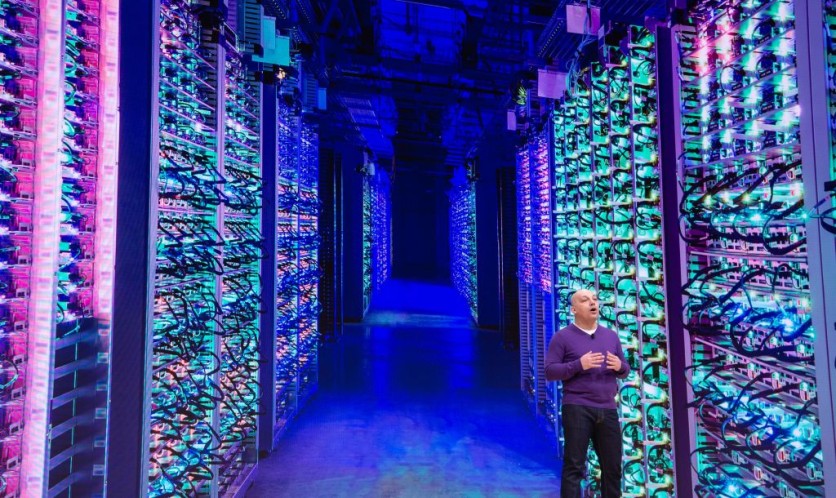China's water supply could reportedly be strained due to the continuously growing amounts of water needed to operate artificial intelligence and data centers, as claimed by the non-profit organization China Water Risk.
According to the Hong Kong-based group, China's data centers use about 1.3 billion cubic meters (343 billion gallons) of water annually, which is sufficient for 26 million people's residential needs.
The amount may surpass 3 billion cubic meters by 2030 due to the anticipated opening of further data centers.

(Photo: JOSH EDELSON/AFP via Getty Images) TOPSHOT - Google Vice President Majd Bakar speaks on-stage during the annual Game Developers Conference at Moscone Center in San Francisco, California, on March 19, 2019. - Google set out to disrupt the world of video games with a Stadia platform aimed at putting its massive data center power in the game maker's hands and letting people play blockbuster titles from any device they wish.
Data centers use water directly to keep IT equipment from overheating. They also indirectly use water to produce electricity using coal.
The group predicted that China would have more than 11 million data center racks holding servers, cables, and other equipment by the end of the decade. That is over three times the approximately 4 million it had in 2020.
China's ICT sector is predicted to increase its demand for water because of the growth of generative AI technologies.
A staggering figure about the resources needed to run AI showed that the massive GPT-3 language model required 16.9 fluid ounces of water for every 10 to 50 responses it generated.
That is twenty times greater than the number of queries one would get on Google. The statistic was revealed in the paper, which cited an unreviewed study.
Read Also: AI Data Centers Restricted Worldwide Due to Energy Consumption
More AI Chatbots, More Water
According to the think tank's analysis, the number of people using chatbots is increasing, and Chinese internet behemoths like Tencent, Baidu, and Alibaba introduced their own AI services last year, potentially increasing the influence on water use.
In its conclusion, the study states that if data center construction continues to increase carbon emissions, it will hasten global warming and worsen the water shortage.
Data centers require a lot of water for cooling, and due to water stress, they also pose an increased danger to ICT industry operations.
The paper suggests that the ICT sector in China, being a dual-high industry, should expedite the transition while simultaneously managing the increasing dangers associated with water and enhancing the country's management of its valuable water resources.
Sustainable AI Efforts
The entire globe can see how absurdly many resources are needed to run artificial intelligence and data centers. According to a Yale School of the Environment article, the International Organization for Standardization—a global network that develops standards for authorities, producers, and others—claims to release guidelines for sustainable AI later this year.
These will include AI-reducing protocols and standards for measuring energy, water, transportation, and raw material consumption.
Impacts on every stage of its life cycle, encompassing resource extraction, computer component production, and the electricity required for its processing.
Related Article: "Absurd" AI Power Demand To Cause Power Grid Stress, Claims CoreWeave

(Photo: Tech Times)
ⓒ 2026 TECHTIMES.com All rights reserved. Do not reproduce without permission.




